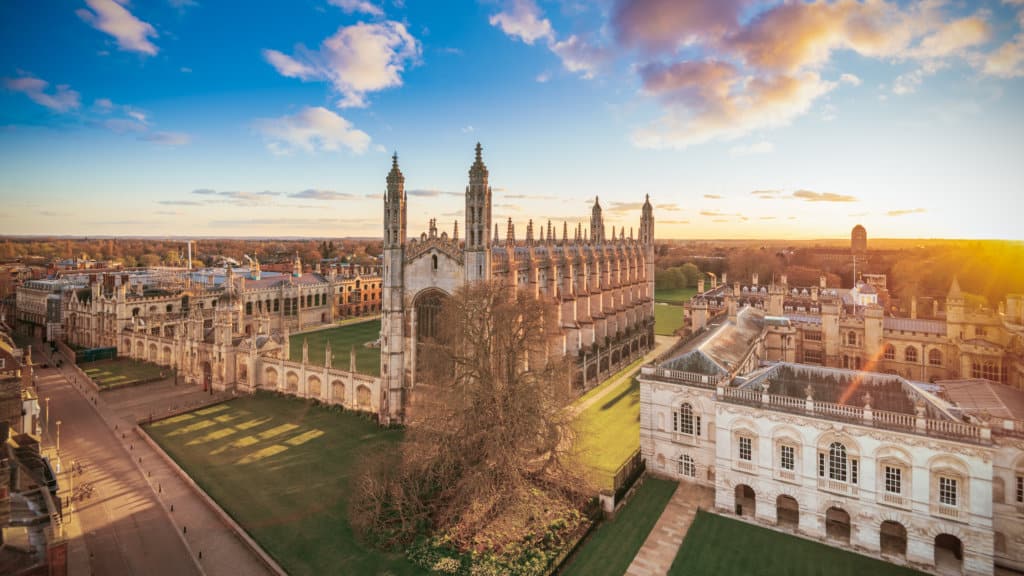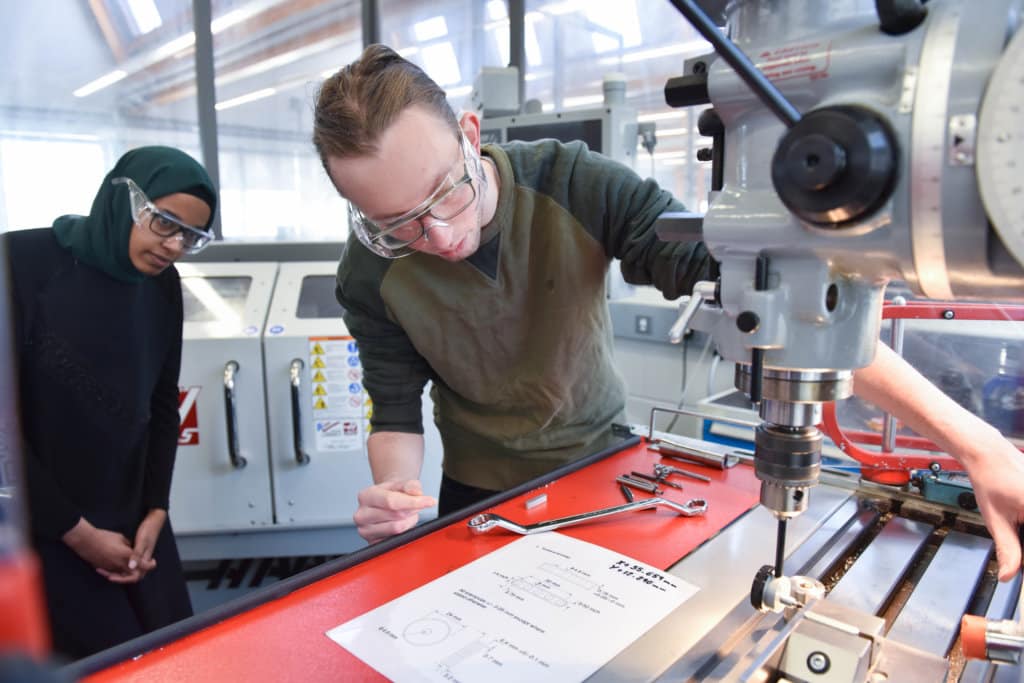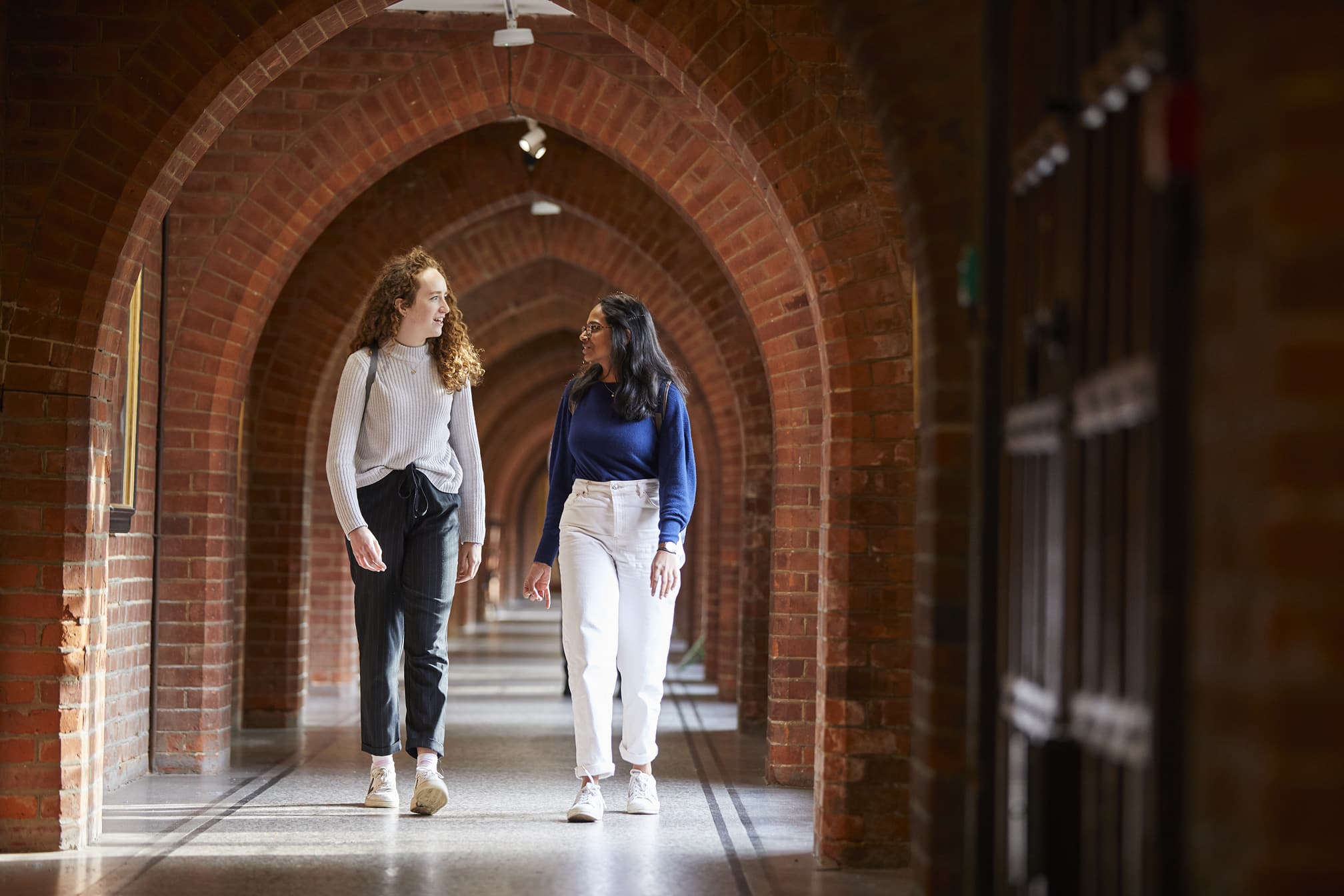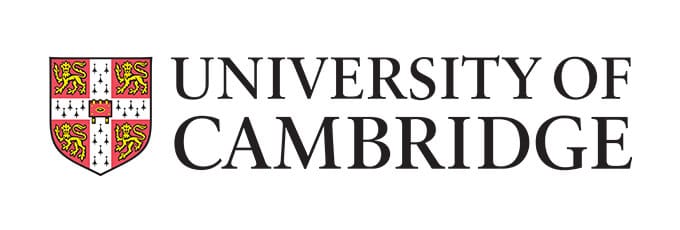Since completing a master’s degree in climate change, management and finance, Ella has been busy. She’s joined British International Investment’s – the UK’s Impact Investor and Development Finance Institution – graduate programme as an analyst, travelled to Brussels to attend a training session on renewable energy project finance organised by the European Development Finance Institutions, and helped promote sustainable lifestyle choices across BII.
Ella said “working somewhere that puts the nexus of development and climate change at the forefront of what they do” aligned with her interests. And as graduates also spend time in BII investment geographies in Africa and South Asia, she gets to benefit from a diverse range of insights and experiences. This is a career with global impact – one that Ella has always wanted and feels is a “natural fit” for her University of Cambridge education.

The University of Cambridge is the second home to more than 20,000 students, from 140 countries. Source: University of Cambridge
Ella is just one of many graduates who pursued meaningful postgraduate degrees and research at Cambridge. The university welcomes students of all backgrounds and aspirations, providing them with funding from internal and external bodies to cover the cost of their study. In 2022/23, the total funding award value was over 100 million pounds. As many as 77% of new PhD students and 24% of new master’s students received either full or partial funding awards. African students, for example, can apply to join the prestigious Mastercard Foundation Scholars Programme. The funding page search function provides details of even more options that are currently available – listed clearly based on course and nationality criteria – from across the university’s departments, colleges, and affiliated funding bodies including Cambridge Trust, GATES Cambridge and Research Councils (UKRI).
These are funds that can transform lives. And not just the recipient’s – but their wider community as well as to the collective wellbeing of people and the planet.
From day one, the university ensures every scholar who arrives here is set on a path to success. At the postgraduate level, students can use the University Careers Service to help them think through options, explore ideas, and find the future that is right for them. Through one-to-one guidance consultations, an extensive programme of briefings and skill sessions, 14 major career events each year; coordinated employer presentations, a free book on CVs and applications, and a database of over 4,000 graduate-level job vacancies – there is plenty of help for Cambridge students to get to their next step. And many do. Cambridge graduates are highly sought after in the job market, across many industries and sectors, including academia.
“Cambridge opens up so many possibilities,” says Huijie from China, a PhD candidate at Trinity College focusing on myocardial regeneration. “The university careers service is also a huge benefit, and the network of alumni is extraordinary. There are opportunities to attend workshops to explore your future career options, to modify your CV for specific job applications, and to even do mock interviews if you wish.”

After a challenging, flexible and individual learning experience, Cambridge graduates emerge as highly sought candidates in the job market. Source: University of Cambridge
It’s hard for employers to deny the impact of an education delivered by and amongst a world-leading community of scholars. Perhaps more profound than boosting one’s employability is the experience one gets in an UK university where learning and research are not only at the highest international levels of excellence but also done in the name of contributing to society. It’s an inspirational place filled with the diverse ideas of some of the region’s brightest minds.
Cambridge has a wide range of courses – over 300 – and each is enriched by their input. “Cambridge is such a unique place to study and to do research. It’s got a great community and you’re always interacting and making connections with different people – from different fields and from lots of different countries,” says Alex from California, an MPhil Physics student whose research focuses on light and nanotechnology. “I feel like I get to learn something or solve something every day.”
International students like Alex live, eat and socialise in one of the university’s 31 colleges which are the second homes of over 9,000 students from over 140 countries. They become part of a multi-disciplinary and international community on campus, which sits in the heart of a city where more Nobel Prize winners have resided than any other city. All of this makes for a dynamic flow of ideas and support within and beyond campus, empowering countless students to create the change they want to see in the world.
PhD candidate Akhila from Hyderabad, India, focuses on the electrical interactions within living systems at a cellular level. For her, the university’s “legacy of science” and unique network of talent invigorate her translational research that spans the Chemistry, Biochemistry and Electrical Engineering departments.
Perhaps what’s more profound to the Gates Cambridge Trust and what makes her “really glad” to be part of Murray Edwards College is how she gets to be part of the global movement to widen access to STEM education. “I’m a huge supporter of women in education, particularly STEM. I’ve been involved with the college’s student committee, and have been its president,” says Akhila. “I’ve had opportunities to do lots of other things in Cambridge, around science and policy, around student organisations, around the commercialisation of research work. It’s been really incredible.”
Follow the University of Cambridge on Facebook, Instagram, LinkedIn, X, YouTube, and TikTok











